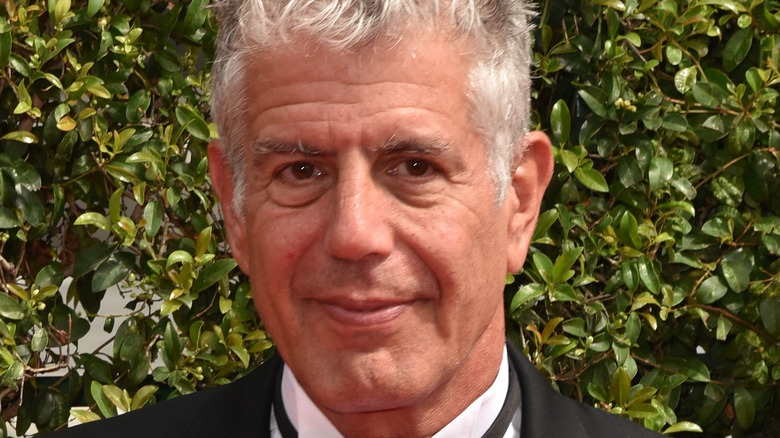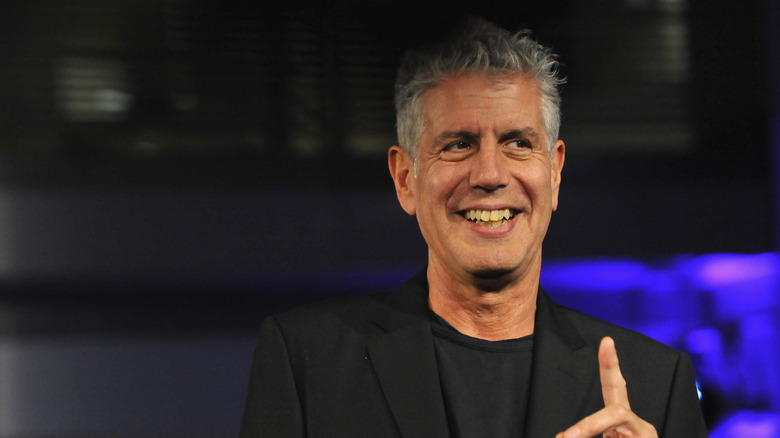The Most Surprising Thing About Anthony Bourdain, According To The Roadrunner Director
Before his death in 2018, Anthony Bourdain occupied a unique space in the landscape of American popular culture. He was both larger than life and sort of an everyman; his huge frame and even bigger personality filled every inch of the television screen, but Bourdain was also a guy you felt like you knew — the kind, as the litmus test goes, that you'd want to grab a beer with. He was a wordsmith; his quick wit and sharp speech came across on camera, as he chatted with everyone from President Obama to the vendors of the open-air markets in Hanoi. Bourdain's verbal acumen shone through his writing, too, where he made food and travel accessible, colorful, and sexy. "He's got that incredibly beautiful style when he talks," friend and fellow chef Nigella Lawson told The New Yorker in 2017. "That ranges from erudite to brilliantly slangy."
And for someone so brash, Bourdain was rarely polarizing. Part of his appeal came in the message he was peddling: eat, travel, be good to people. The bigger reason, though, was probably Bourdain's honesty. He talked from the heart, and was refreshingly candid about his struggles with addiction and depression. So, what could possibly have surprised Morgan Neville, the filmmaker behind "Roadrunner: A Film About Anthony Bourdain," about the chef everyone felt like they knew? "I think he was shy," Neville told Fine Dining Lovers. "He had this, kind of, imposter syndrome where he never really thought he deserved the success and always felt like it might just go away."
For a man so forthcoming, Bourdain was full of surprises
Though Neville himself never met Bourdain in real life, he told Fine Dining Lovers that "just getting to spend time with Tony" was one of the gifts that making the documentary — especially during a pandemic, in which everyone was housebound — gave to Neville, personally. "The stuff they used in the shows was one thing," Neville explained, in regards to getting to know Bourdain via his film research. "But in the raw footage, he's so funny and dark and honest about everything that it's just great to see him work."
Watching Bourdain react so shyly to his sudden fame, or seeing him grapple with imposter syndrome, weren't the only surprises along the way, either. Neville told The New Yorker that not knowing Bourdain personally didn't necessarily mean he went into the documentary with a blank slate. With preconceived notions of telling a story of shared humanity — of a man whose mission in life was to create empathy through food, travel, and storytelling — Neville explains that from the beginning, Bourdain's friends and family were quick to correct him. "They stopped me, at a certain point, to say 'Yeah[...] but he could be such an a******,'" Neville told the New Yorker. "A thing I really came to understand while creating this film is that all the things that were his flaws were also his superpowers."

